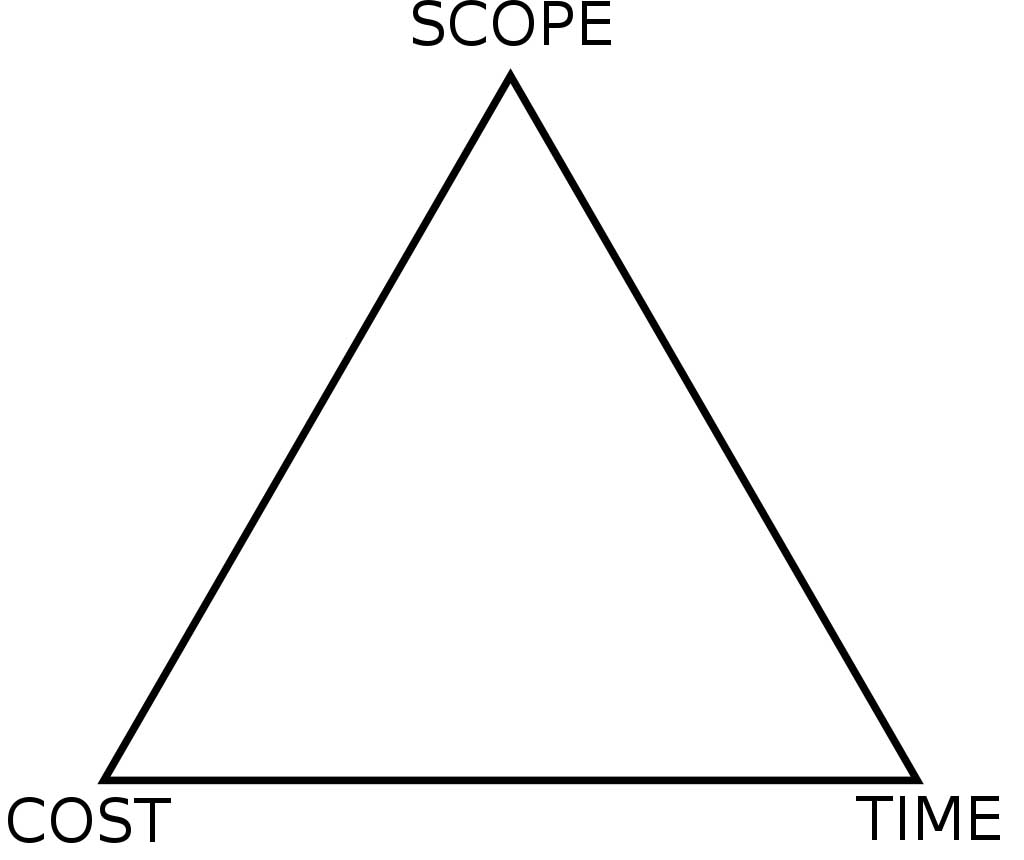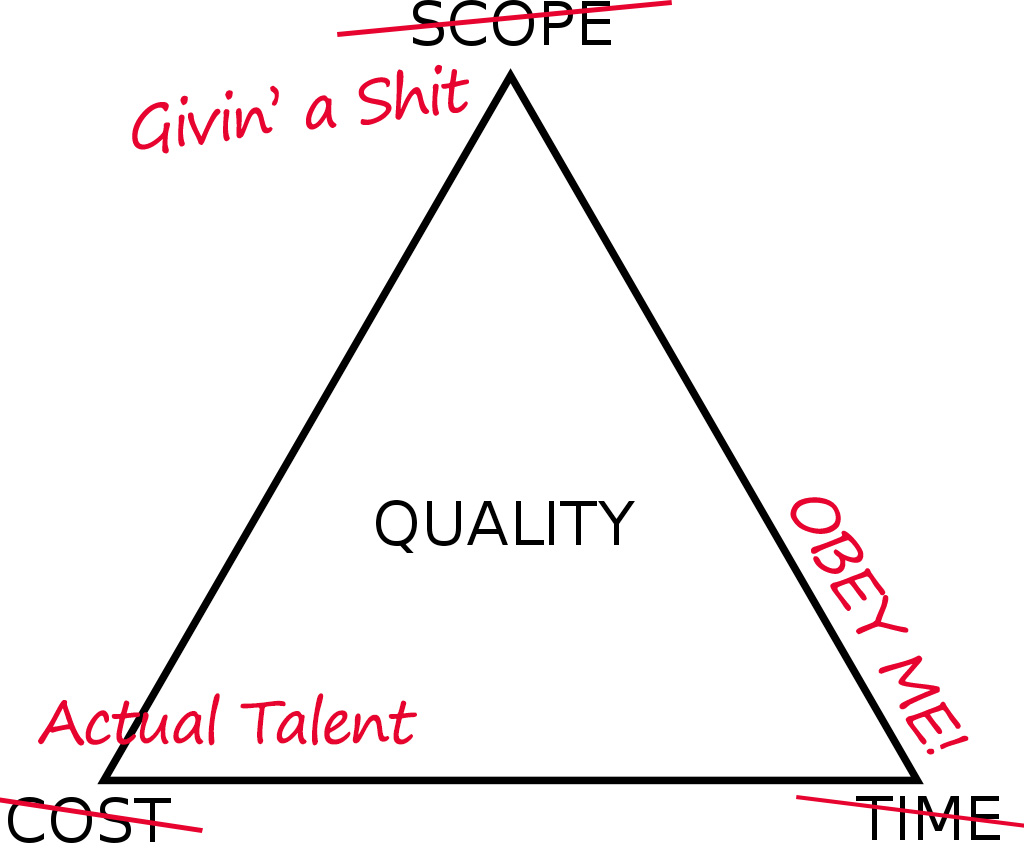Proficient, Compliant, Invested
You are probably familiar with the Project Management Iron Triangle. For the uninitiated, it’s a simple diagram that explains how every project must balance three important resources: time, money and scope. Increases in the speed of a project will negatively affect the scope (by removing features) or the price (by adding additional hands on deck), etc.
However, there is another important triangle model we should consider when managing resources, particularly human resources, so we’ll call it the People Management Iron Triangle (until we come up with a better name). The three vertices of this triangle are as follows:
- Proficiency (pro) - the ability of a given person or team to complete the task at hand
- Compliance (com) - the willingness of a given person or team to follow instructions blindly
- Investment (inv) - the amount that a person or team cares about the ultimate goals or product
For example:
- People who are good at their jobs (high proficiency) and are forced to follow orders without question (high compliance), will disconnect emotionally from the job (low investment) and view work merely as a source of a paycheck.
- People who believe in the project (high investment) but also listen blindly to their superiors (high compliance) are usually not very capable (low proficiency).
- People who care about the project (high investment) and are adequately capable of completing the project (high proficiency) will likely push back against micro-management (low compliance).
Following this model, you can imagine 8 types of people:
Types of People
- (PRO, COM, INV) - These people do not exist
- (PRO, COM, inv) - Talented people who do whatever you say because they simply don’t care anymore. They probably have their own ideas about the project but have realized that resistance is futile. So they phone it in, collect their paycheck and go home. Because they’re talented, their half-assed work is still passable. But either you’re paying a lot of money for average work, or this employee will leave when a better opportunity comes along.
- (PRO, com, INV) - Talented people who care about the ultimate success of the project. By virtue of their proficiency and emotional investment in the goal, these people will certainly have their own ideas about the direction. Unless you can clearly and succinctly explain to them why your idea is better for the project in the long run than theirs, they will push back at every turn. “Just trust me” will not fly with these people.
- (PRO, com, inv) - Talented, experienced people who don’t care about the project they are doing. Even so, they don’t really want to listen to you. These people are rarer than you imagine and their motivations are sometimes unclear.
- (pro, COM, INV) - These people can be a double edged sword, depending on how aware you are of their lack of...experience. If you know that they are green, their compliance and passion can be effective tools in their training. If you do not recognize their weaknesses (perhaps because of your own subject matter blind-spots), you probably won’t until it is far too late. Their enthusiastic agreement may put them in your good books, but if other, less compliant or invested people warn you about these apparent golden-geese, pay attention. They may be seeing something that you aren’t.
- (pro, COM, inv) - This type is actually semi-common in cases of nepotism. Emotional investment in workplace culture or in you doesn’t necessarily mean investment in the project. They are unlikely to challenge you, both because they don’t want to upset their friend or relative, or threaten their position at the company and because they don’t have the expertise to judge the quality of your direction.
- (pro, com, INV) - This type is also common, particularly in startups and charities. These people are passionate and persuasive. They care about the project but their passion betrays a lack of actual ability. When it comes to execution, their disagreement with your direction is borne of a combination of self-righteousness and, in the case that you are correct, that same lack of subject-matter judgement described earlier.
- (pro, com, inv) - These people definitely exist, but it seems unlikely that you’ve hired one. If someone in your company is knowingly inexperienced but later stops caring about the project and stops listening to you, that is more a cause for concern. You may have done something to alienate them or something is happening in their personal life that you can’t control. You need to decide if this is a permanent problem or a temporary one and act accordingly. If you believe them to be proficient, but they aren’t producing anything of value, they may just be an apathetic sociopath who has convinced you they are something they aren’t.
I'm a developer at heart, so I prefer the PcI style of management: find good people who are in line with the goals of the company and let them work (mostly) independently. But each type has its own strengths and weaknesses. Some are obviously better than others, but your management style should be taken into account. Maybe it isn’t super important that your employees are invested in the project, and you keep them engaged in other ways [read: money]. Maybe you want highly motivated and malleable newbies whom you can groom and nurture. The choice is up to you, but it’s important that you are honest with yourself and your team, and if you ever find yourself in a situation where you think you’ve found a true PCI - look harder, something is likely amiss.

